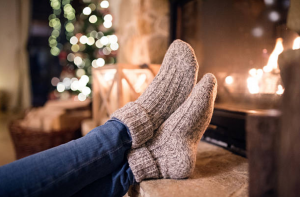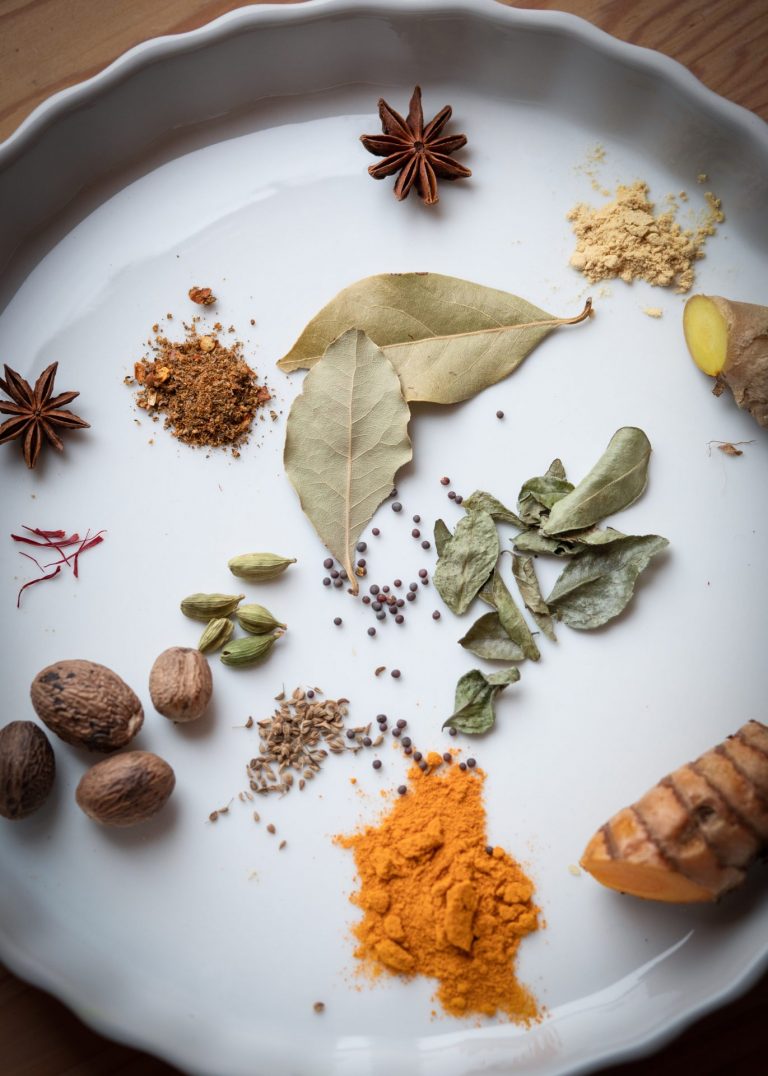Autumnal Cravings and Aversions
Last night it rained heavily. The sun showed his face in the morning but, nevertheless, it was cold and damp. Autumn has broken the summer’s neck. It felt like on Tuesday we enjoyed our last summery day in Kensal; a heavy damp heat which, for certain, is over now and we’re heading towards the cold, ethereal winds of the autumn.
The weather expresses change but, in my ayurvedic opinion, the more interesting side of the seasonal change manifests in the bodymind. What exactly are these signs become clear by being mindful of the messages we get from within in the form of cravings and aversions.

We had a long and warm summer when our cravings were marked by yearnings for cool and it showed in our choices for the drinks, the food and the side of the street we walked on. Aversion to heat was marked by less clothing, preference for cooling drinks, ice cream and ventilation. Cooling bodies express less appetite and summer salads were enough to satisfy our needs for nourishment. Now, when heat has succumbed to the cold, I personally find myself craving for warm comforts and naturally feeling aversion towards anything cold and light. The heating is on, woolly socks feel heavenly and I’ve begun eating pretty heavy pasta for lunch as carbs are on! Breakfast with a nice slice of toasted sourdough with plenty of ghee and jam on top feels extremely satisfying. As my occasional guilty pleasure of the season, I have some roasted salted nuts and seeds with a small glass of organic red wine.
I respect my cravings and aversions because I know they respond to the metabolic needs of the season. Now is the time for me to nourish and create a bit of storage for the winter. Most importantly, I won’t feel guilty but do it with gusto. Never, however, do I compromise on timing the meals right (two to three meals a day, emphasis on lunch and little meal in the evening). Equally important is to avoid overeating, fast eating and snacks. Drinking plenty of water and taking a fair amount of healthy fats is essential in autumn. (Try a teaspoonful of organic ghee in your morning coffee or tea. Mix in a blender to create a smooth coffeehouse foam. Yummy!)
SIGNALS FOR CHANGE
Cravings and aversions are the bodymind’s way of signalling we need to make a behavioural change. The intelligence of our organism is highly sophisticated. The adjustments we need to make withing changing environment are wired in our genes. This is called self-regulation, which is a process the cells undergo within the framework of birth, death, repair andregeneration. It’s our capacity to renew after wear and tear or disease. It happens without our awareness and without much choice if it happens or not. We are built to last and in addition to unconscious self-regulation our bodymind makes us behave in a way to create conditions for comfort.
When self-regulation is not possible within the means provided the body itself, we start craving things. Cravings direct us towards conscious (and often unconscious) actions that help the body to come back to balance such as adding clothes on or turning on the heater. Running late to the corner shop for a bag of crisps is guided by an innate need to get something lacking either from the body or the mind which is either comfort or need to pacify the nerves. Salt is important in helping the nerve impulse to travel. People with cramps and anxiety often binge on crisps and other processed highly salted foods in order to balance body’s chemistry and need for comfort.
AUTUMN CRAVINGS
Salt cravings are typical of this period of autumn and coming winter but so are sweet ones. Sweet cravings usually manifest because of the need of nourishment but also for calming and grounding purposes. Both sweet and savoury tastes pacify our nerves and create a feeling of satisfaction. In autumn the appetite increases because we need to provide more nourishment to cope in winter and keep nervous system grounded as the climatic conditions irritate nerves. Cold and wind make us shake and they also dry our skin. In response to the toughening weather, the body is keen on putting weight and keeping our mucous levels high increasing the cravings for heavy hearty meals…and snacks, and bread, and chocolate, and bread, and salted nuts, and red wine, and chocolate, and sweets and chocolate… The important thing is not to get carried away. We need to accept that our cravings are directing our body to do what it needs to do in order to stay balanced and comfortable.
In order for the bodymind to feel comfortable, cravings can be anything, not necessarily healthy. Healthy or unhealthy, we are always on the lookout for safety and comfort. This need might lead us to eat and do things that are not conducive to health for example binge eating or drug abuse. They can give almost instant relief, but the catch is that the comfort they provide is not long-lasting. The craving comes back soon and the relief provided was only symptomatic. Once in a while comfort eating is ok, and an extra glass of wine is fine. On a long run, however, they have a habit of only making things worse. The point is to show that any craving or aversion, for that matter, is an attempt of the bodymind to make us do something and behave so that we feel comfortable.
MINDFUL CHOICES TO PACIFY CRAVINGS

We need to be attentive to these feelings and respect their call. Whether good or bad they are signs that we need to make a change. We can choose to do symptomatic relief by binging on biscuits but after all they rarely save the day. Instead, they make us feel guilty, leaving us without satisfaction. What our choices are, what we choose to do or eat in order to pacify a craving, is the measure of our level of awareness of what is good for us and what is not.
AVERSIONS
Aversions work the opposite way as cravings. Theoretically, we should not do or eat anything we don’t like. By and large there is a specific reason why we dislike something (if we are healthy and in a sound state of mind). Aversion creates tension and when tense we are not able to process foods or create healthy movement. Therefore, if you don’t like running, you shouldn’t do it. Instead, choose a type of exercise that during performance creates satisfaction. As for food, when eating something that doesn’t appeal to us creates problems in the digestive process such as too little saliva, the premise for proper carbohydrate digestion. Salivation is promoted by appetite and when there is little or none, there is no good digestion.
Each season brings along its typical aversions. Many feel like cutting down on chilli and coffee at this time of the year because these items irritate nerves and increase instability and anxiety. Cold drinks and cold salads, typical cravings of summer season, also might create feelings of aversion in winter for their inherent cold properties.
VATA IS HIGH
In ayurvedic terms, vata energy increases in autumn. It is especially high in the junction of the seasons. The mostly felt quality of vata is irregularity, which we can see in how the weather changes from moment to moment and how our bodies show signs of distinct changes in mood and function. Now is the time to be diligent with our routines, keep our body clocks tuned with well-timed daily activities. We should get proper nourishment, add more fats and proteins in our diets and make sure we don’t faff about like headless chickens. We need to get grounded and calm down, keep that vata energy moving smoothly and safely so that we are warm, calm and… as if by magic, get creative.
CREATIVITY IS HIGH
Dryness, lightness, cold and irregularity are qualities that irritate nerves if we are exposed to too much of them. These qualities, however, in small portions, stimulate nerves and thus serve as promoters of creativity, the best expression of vata dosha. Autumn is the time to stay cosy at home and start writing that book, drawing or painting whilst sipping a cup of warm tea like fennel, cinnamon, liquorice or cardamom, letting the mind to fly safely in the confines of our infinite creative space (yes, I love an oxymoron).
PREDICTABILTY OF CRAVINGS
Ayurveda is very mindful about what we crave and what we dislike. When we are healthy, these feelings are cues we can almost predict within the framework of days and seasons. Autumn makes us crave things that might be distasteful in spring. In summer we crave cooling things that are distasteful and uncomfortable in winter. Cravings and aversions are tightly knitted in the patterns of seasons especially as regards food cravings. When you notice you just can’t get enough of something, such as chilli in spring, check if it is your body’s message to do seasonal balancing.
The so-called unhealthy cravings are those that are not in alignment with seasonal or daily rhythms. They might have arisen simply from a habit learned in the past or created because of an overwhelming need to get comfortable and soon. The trick is not to repeat symptomatic relief but start checking, once comfortable what is causing the craving. Sometimes you might need professional help, such as coming to see me in our clinic for a consultation. We can check where cravings and aversions arise from and create a diet and lifestyle that prevent the bad ones from arising and, instead, recognising and respecting the good ones. When a craving is appropriate there’s nothing to prevent you from appeasing it with the means provided by Mother Nature.
Stay healthy!
Anu
A SNACK TIP; ROASTED NUTS AND SEEDS

Why should we roast nuts and seeds? Firstly, because it enhances the flavour of these excellent seasonal food items. Secondly, because it makes them easier to digest. They are heavy and fatty but by exposing them to heat they are processed better in our guts. The umph can be increased by adding a pinch of salt during the roasting process. I prefer to grind the salt (natural salt, such as rock or sea salt. Avoid white table salt) in a mortar to a very fine powder and sprinkle it on when starting the roasting process. That might be the most complicated part of the process as roasting really doesn’t require other than attention not to roast excessively. Choose your favourites such as walnuts, pine nuts, cobnuts, pumpkin seeds and sunflower seeds. Toss the nuts and seeds regularly to avoid burning. Allow them to get slightly darker in colour. As for seeds, when they start popping, they are ready.
If you are keen on avoiding salt, maybe use tamari, soy or liquid aminos. You can also add some garden herbs and spices such as rosemary, sage and thyme. Pepper, nutmeg and any other spices of your liking can be mixed in during the roasting process.





Leave a Reply
You must be logged in to post a comment.